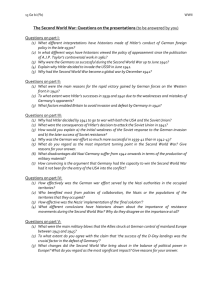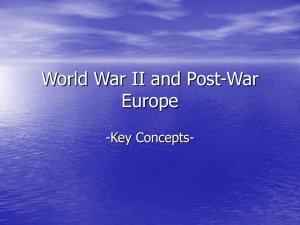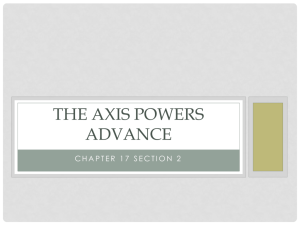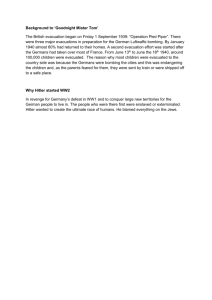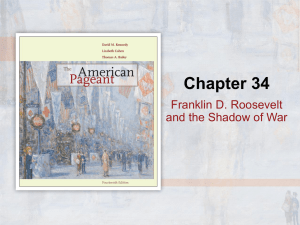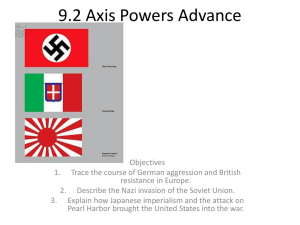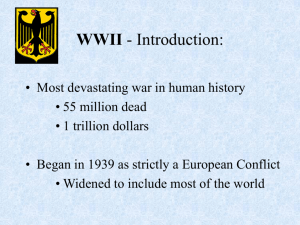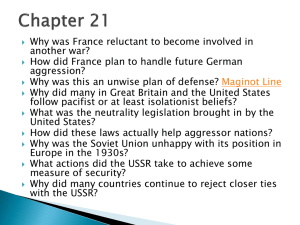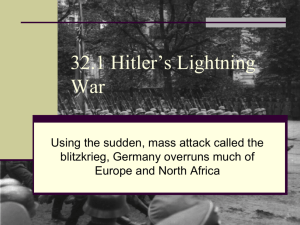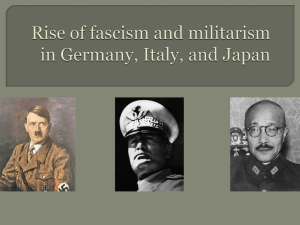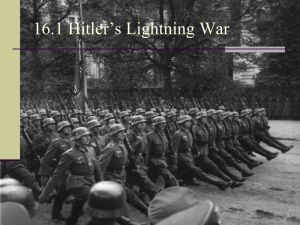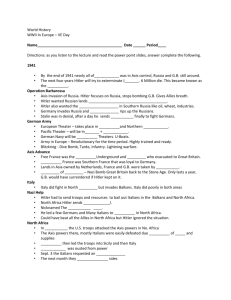INVASION OF POLAND
advertisement
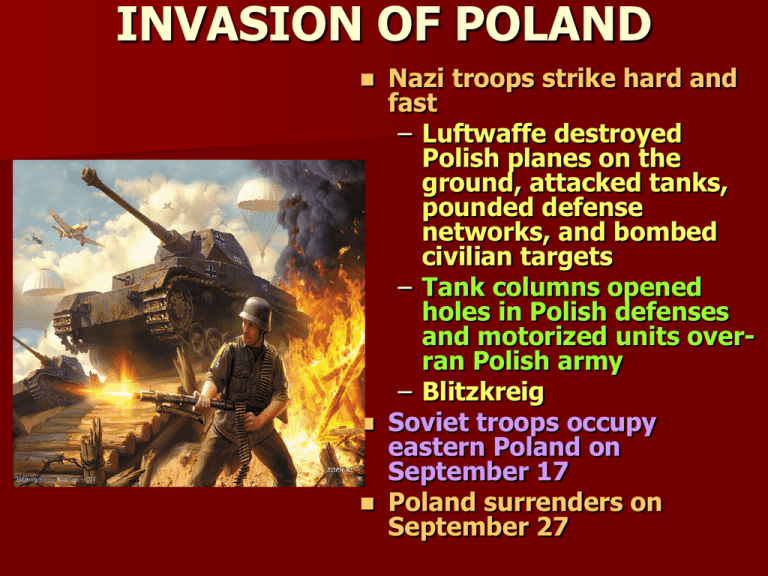
INVASION OF POLAND Nazi troops strike hard and fast – Luftwaffe destroyed Polish planes on the ground, attacked tanks, pounded defense networks, and bombed civilian targets – Tank columns opened holes in Polish defenses and motorized units overran Polish army – Blitzkreig Soviet troops occupy eastern Poland on September 17 Poland surrenders on September 27 “PHONY WAR” September 1939-early April 1940 No ground fighting between two sides in West – Hitler waiting until spring to unleash blitzkrieg – French and British waiting behind Maginot Line for German attack BLITZKRIEG IN THE WEST Nazi forces hit Norway and Denmark in early April – Reasons were primarily economic Results – Both countries easily conquered – German victory discredits Chamberlain and he is replaced by Winston Churchill – Norwegian merchant fleet escapes to GB and dramatically increases Allied shipping strength HOLLAND, BELGIUM, AND LUXEMBOURG Nazis attack Holland – City of Rotterdam bombed Belgium attacked next – French forces rush into Belgium to prevent Nazi breakthrough – Nazi tank divisions avoid French and move through Ardennes forest and into France FALL OF FRANCE I German troops rocket across northern France, cutting French troops in Belgium from those in France French and British forces driven to Dunkirk where the Nazis planned to bottle them up and destroy them Hitler orders Luftwaffe to bomb Dunkirk into dust – Fog and rain hinder air attack – Allies evacuate across English Channel FALL OF FRANCE II French government asks for an armistice – Signed June 22, 1940 Why did France lose? – French officer corps did not understand use of aviation in modern warfare – French officer corps had not mastered the psychology and technology of motorized warfare – Loss of will among French people VICHY Germany occupied northern France and Atlantic coast French military demobilized Retired Marshall Henri Petain heads French government in southern France – Capital at Vichy – Collaborated with Germans General Charles De Gaulle escapes to London and organizes Free French forces BATTLE OF BRITAIN August 1940—Luftwaffe begins massive attacks on British air and naval installations Royal Air Force (RAF) fights Luftwaffe on daily basis in skies over England Due to high losses and failed objectives, Hitler postpones invasion of Britain “until further notice” in September 1940 – Reasons? British development of radar Skill and courage of RAF German difficulties in replacing downed planes THE “BLITZ” Luftwaffe begins daily bombing of cities, industrial centers, and ports in order to destroy British morale Despite heavy losses, British morale and determination to fight never broke OPERATION BARBAROSSA In July 1940, Hitler instructs his generals to prepare for invasion of Soviet Union – Sets May 15, 1941 for start of invasion Italian army flounders in Greece in October 1940 – Hitler forced to send Nazi troops there to help in April 1941 – Forces Hitler to delay invasion of Soviet Union until June 1941 Barbarossa finally starts on June 22, 1941 – Massive invasion force 4 million men, 3300 tanks, and 5000 planes THE INVASION German ground forces move rapidly into Russia – 2.5 million Soviet soldiers killed, wounded, or captured and 14,000 tanks destroyed in 3 months Stalin refuses to surrender – German army begins to run low on fuel and suffers from poor transportation – Russian conditions do not favor blitzkrieg tactics BATTLE OF MOSCOW December 1941 Bitterly cold conditions – Frostbite – Lack of antifreeze Germans advance to within 20 miles of city but are stopped by Soviet counterattack SEIGE OF LENINGRAD Germans surround Leningrad by September 1941 – Constant bombardment People of city suffer from famine, disease, and shelling – One million die as a result City never surrendered to Germans
